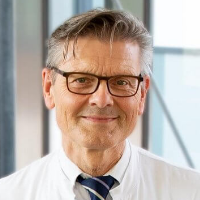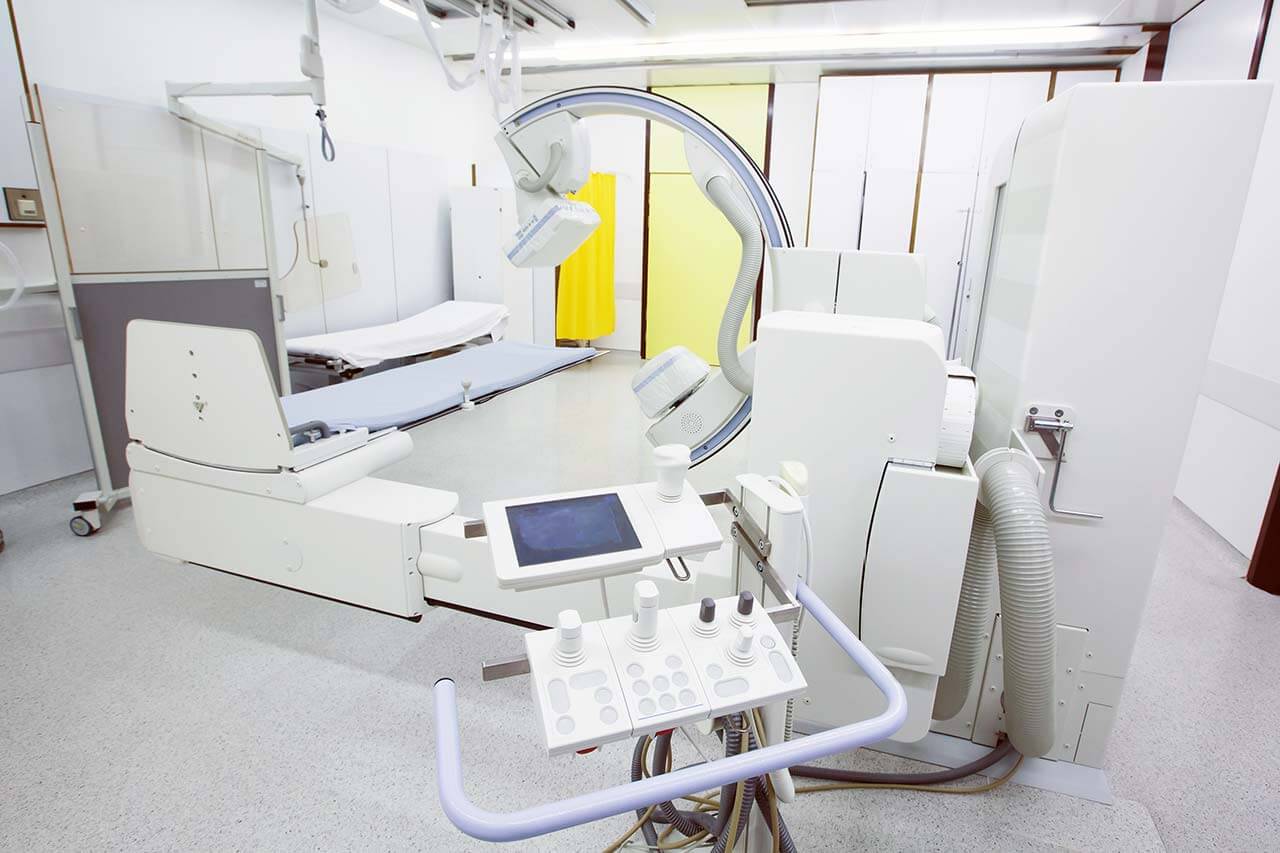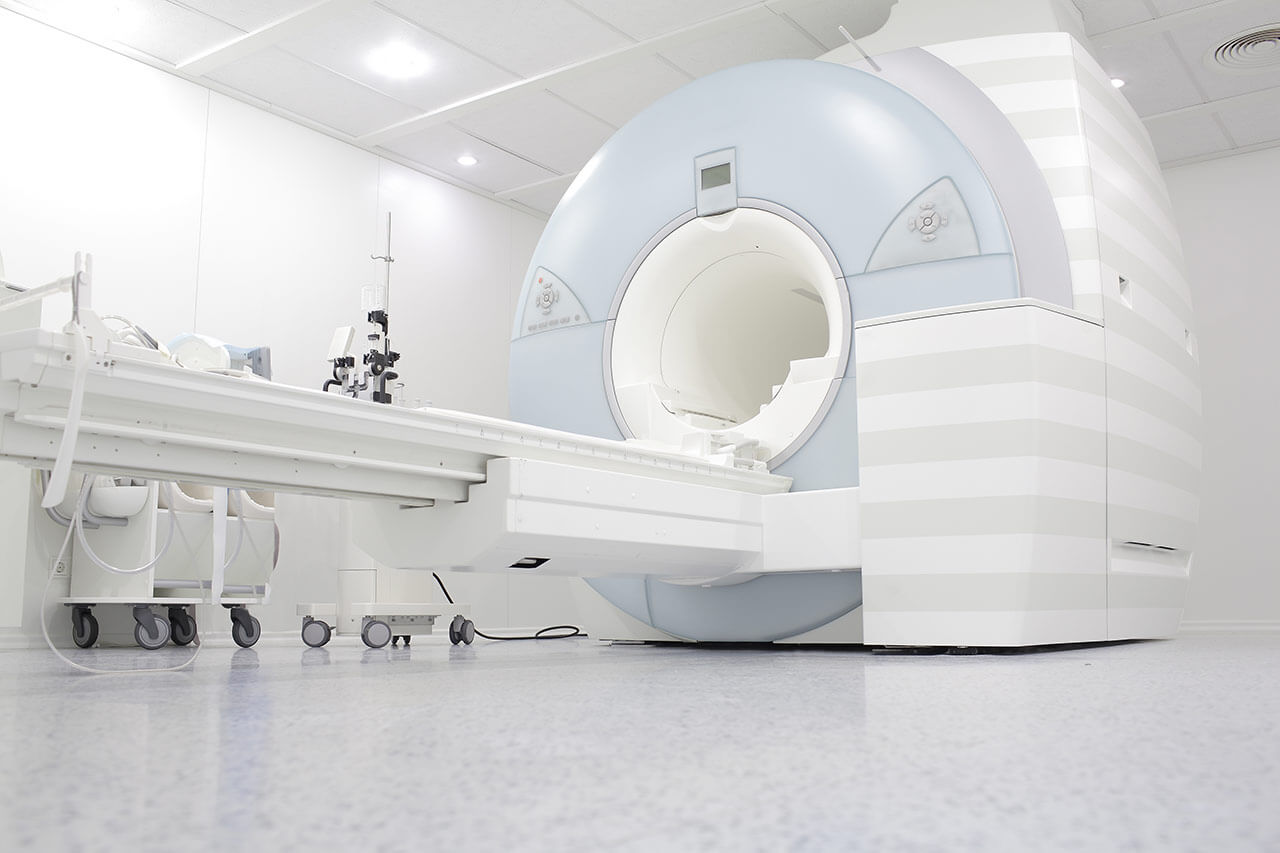
The program includes:
- Initial presentation in the clinic
- clinical history taking
- physical examination
- laboratory tests:
- complete blood count
- general urine analysis
- biochemical analysis of blood
- TSH-basal, fT3, fT4
- indicators of inflammation
- indicators blood coagulation
- ultrasound
- MRT/CT /ultrasaund
- accommodation in sterile boxes
- preoperative care
- carrying out a complex reconstructive
surgeries for burns of the skin - symptomatic treatment
- cost of essential medicines
- nursing services
- stay in the hospital with full board
- full hospital accommodation
- elaboration further recommendations
Required documents
- Medical records
Service
You may also book:
 BookingHealth Price from:
BookingHealth Price from:
About the department
The Department of Adult and Pediatric Plastic, Aesthetic, Reconstructive Surgery, Hand Surgery and Reconstructive Burn Surgery at the Hannover Medical School offers the full range of modern plastic surgical interventions, operations for the treatment of hand diseases and injuries, as well as reconstructive operations for patients with burn injuries, including highly severe. The department uses the very latest plastic reconstructive methods for the treatment of posttraumatic and postoperative complications, chronic degenerative diseases and congenital malformations. The medical facility has vast experience in breast reconstruction using the patient's autologous tissue. The department's aesthetic plastic surgeons perform various operations to improve the appearance: facelift, breast augmentation, liposuction, blepharoplasty, rhinoplasty, otoplasty and other interventions. Prior to any intervention, the patient undergoes a comprehensive diagnostic examination to exclude contraindications and health risks. The team of the department’s surgeons deservedly enjoys an excellent reputation throughout Germany, providing patients with the best quality of medical care. The department is headed by Prof. Dr. med. Peter Fogt.
A large number of plastic surgeries are performed for congenital and acquired defects after the treatment of cancers, injuries and accidents. The department's surgeons have a perfect command of microsurgical techniques for the reconstruction of nerve endings, muscle tissues and other tiny anatomical structures, various flap methods for correcting skin defects and other modern surgical techniques. Of particular interest to surgeons are breast reconstruction after breast cancer, asymmetry and malformations of the mammary glands, reconstructive surgery for facial nerve paralysis, lesions of the nerve plexuses of various parts of the body, as well as plastic surgery after rapid weight loss. In addition, the tasks of the department's plastic surgeons include the removal of malignant skin and soft tissue tumors using the most sparing techniques, which prevent the formation of scars. The surgical treatment of such tumors as basal cell carcinoma, squamous cell carcinoma, melanoma and other malignant tumors is regularly performed here.
The department's aesthetic plastic surgeons perform a wide range of surgeries to improve a person's appearance. Such operations can be performed without clinical indications, at the request of the person. Middle-aged people who want to get rid of age-related changes (wrinkles, sagging skin, etc.) quite often resort to such operations. Patients often come to the department with a desire to augment their breast, reduce their nose, get rid of extra pounds using liposuction, have skin lift after rapid weight loss, etc. The team of surgeons of the medical facility successfully copes with all types of plastic surgery, while doctors always strive to provide the patient with the most natural result. Prior to aesthetic plastic surgery, the surgeon holds an exhaustive consultation, during which he attentively listens to the patient's wishes, offers possible solutions to his problem, talks about each stage of the upcoming operation, possible risks of the intervention and the recovery period. If necessary, the specialist also performs computer modeling of the expected result of the plastic surgery so that the patient can see it in advance. Such an approach allows the doctors to achieve a high percentage of patient satisfaction with their new appearance after aesthetic plastic surgery.
Hand surgery also plays an important role in the department's clinical practice. Hand interventions are particularly complex, so they require not only high professionalism of surgeons, but also high-tech medical equipment. The department carries out effective operations for traumatic injuries, degenerative diseases, benign and malignant tumors, infectious lesions and congenital malformations of the hand. In addition, the department's service range in this field is complemented by replantation surgery (around the clock). The department is certified as the European Center for Hand Injury and Replacement Surgery by the Federation of European Societies for Surgery of the Hand (FESSH). Only the best medical facilities in the European Union that provide patients with excellent quality medical care can pass this certification.
The department's surgical options are complemented by reconstructive interventions in patients with burn injuries. The main method for correcting the consequences of burns is skin grafting. The patient's own tissue is used as a donor material (for example, from the thigh, back). During the operation, the surgeon obtains the superficial thin layers of the skin and transplants them into a pre-treated recipient site (burn area). If the burn injury affects a large skin area, and the patient's own donor material is not enough, then flap plastic surgery is performed. The department's surgeons use both temporary and permanent skin flaps. Temporary skin flaps are usually made of synthetic materials, while permanent ones are made of biological tissue, survive well and have the properties of human skin (sensitivity, elasticity, etc.). To correct scars after burns, conservative methods (for example, special ointments and gels), laser techniques and plastic surgery are used.
The department's range of surgical services includes:
- Reconstructive plastic surgery
- Microsurgery
- Reconstruction or transplantation of nerve endings in case of paralysis caused by damaged facial nerve, brachial plexus, and paralysis of other localizations (for example, lower limb)
- Reconstruction or transplantation of lymphatic vessels or lymph node groups in lymphedema
- Breast reconstruction with transplantation of the patient's own tissues from the lower part of the abdominal wall
- Transplantation of the patient's own tissues into the lower and upper limbs in case of large defects, consequences of accidents
- Skin and soft tissue reconstruction
- Skin grafting
- Local flap surgery
- Pedicle flap plastic surgery
- Free tissue transplantation
- Special techniques for skin and soft tissue reconstruction
- Reconstruction in case of paralysis caused by facial nerve damage
- Cancer surgery for skin and soft tissue tumors
- Functional restoration in paralysis / nerve reconstruction
- Operations to restore motor function in case of paralysis due to peripheral nerve damage
- Operations to restore both flexion and extension function of the elbow (triceps function)
- Operations to restore hand motor function
- Operations to restore both flexion and extension function of the fingers
- Operations to restore shoulder and elbow function
- Operations to restore both flexion and extension function of the knee
- Reconstructive surgery in paralysis due to the damaged nerve plexus
- Breast reconstruction
- Operations to eliminate asymmetry and breast defects
- Body reshaping after a significant weight loss
- Abdominoplasty
- Breast lift using the patient's own tissues
- Breast lift using implants
- Upper body lift
- Arm lift
- Thigh lift
- Buttock lift
- Combined thigh and buttock lift (Bodylift)
- Microsurgery
- Aesthetic plastic surgery
- Breast augmentation
- Breast reduction
- Liposuction
- Abdominoplasty
- Arm lift
- Thigh lift
- Facelift
- Forehead lift
- Eyelid surgery (blepharoplasty)
- Nose reshaping (rhinoplasty)
- Ear reshaping (otoplasty)
- Treatment of wrinkles with the injections of Botox, fillers
- Hand surgery
- Reconstructive interventions for severe hand injuries
- Surgical treatment of wrist bone defects
- Surgical treatment of finger flexor injuries
- Surgical treatment of hand malformations in early childhood (polydactyly, syndactyly)
- Surgical treatment of Dupuytren's contracture
- Surgical treatment of carpal tunnel syndrome
- Surgical treatment of arthritis of the thumb saddle
- Surgical treatment of ganglion
- Surgical treatment of trigger fingers
- Surgical treatment of rheumatoid arthritis
- Wrist arthroscopy
- Reconstructive burn surgery
- Treatment of severe burns
- Skin grafting
- Flap surgery
- Correction of burn consequences
- Plastic surgery for scar revision
- Laser therapy
- Other surgical options
Curriculum vitae
Memberships
- American Association of Plastic Surgeons.
- American Society of Plastic Surgeons.
- Professional Association of German Surgeons.
- German Society of Plastic, Reconstructive and Aesthetic Surgeons.
- German Society of Surgery.
- German Society of Traumatology.
- German-speaking Working Group on Microsurgery and Hand Surgery.
- German Society of Hand Surgery.
- German Society of Senology.
- German Society of Burn Medicine (Advisory Board).
- European Academy of Sciences and Arts.
- European Association of Plastic Surgeons.
- European Burn Association.
- Federation of International Plastic, Reconstructive and Aesthetic Surgeons (Delegate).
- International Society for Burn Injuries
- Plastic Surgery Research Council, USA.
Awards
- 1992 Grant Award, Plastic Surgery Educational Foundation, Chicago, USA.
- 1993 Joseph Murray Resident Award, New England Society of Plastic and Reconstructive Surgery, Newport, Rhode Island, USA.
- 1994 Von Langenbeck Award, German Society of Surgery.
- 1999 Travel Award, German Society of Surgery.
- 2008 Visiting Professor, Belgrade University.
- 2010 Edgar Ungeheuer Award, German Society of Surgery.
- 2014 Visiting Professor at the Harvard Medical School in Boston.
Photo of the doctor: (c) Medizinische Hochschule Hannover (MHH)
About hospital
The Hannover Medical School has the status of a leading German medical facility. The advanced medical technologies, highly qualified specialists, as well as productive research activities form a solid basis for top-class medical service of the world standard. The hospital is proud of its outstanding achievements in the treatment of cancer, diseases of the lung, heart, kidney, liver and metabolic disorders, as well as surgical diseases.
The medical facility diagnoses and treats more than 63,000 inpatients and about 470,000 outpatients annally. These indicators are growing steadily, which indicates the reputability and prestige of the hospital in the European medical arena.
For decades, the hospital has been a pioneer in transplantation medicine and is one of the leading centers of this specialization in the world. It performs about 400 transplantations of solid organs annually. Also, the hospital has performed over 130 bone marrow transplantations. In addition, the hospital ranks among the world leaders in cochlear implantation for the treatment of hearing loss.
Much attention is paid to interdisciplinary cooperation. Since 2016, the hospital has the largest certified Cancer Center in the Federal State of Lower Saxony, which provides comprehensive, multidisciplinary medical care in accordance with the standardized protocols of cancer societies.
The specialists of the hospital offer patients not only modern treatment of the highest quality, but also attentive care, sympathetic attitude to the patient's problems and understanding of his individual needs. Thus, the patient can be sure that his health is in the safe hands of highly qualified doctors.
Photo: (c) depositphotos
Accommodation in hospital
Patients rooms
The patients of the Hannover Medical School live in comfortable and cozy rooms. Each patent room has an ensuite bathroom with shower and toilet. A standard patient room includes an automatically adjustable bed with an orthopedic mattress, a bedside table, a wardrobe, a TV and a telephone. You can use TV, telephone and Internet using a special chip card, which can be purchased at self-service terminals or ordered at the service counter. The hospital allows the patients to use mobile phones, with the exception of intensive care units, some departments and diagnostic rooms.
If desired, the patient can stay in an enhanced-comfort room. Such rooms are distinguished by a more sophisticated design, and are additionally equipped with upholstered furniture, a safe for storing valuables and a mini fridge.
Meals and Menus
The patient and the accompanying person are offered delicious and balanced three meals a day. Breakfast and dinner are served buffet style and lunch can be chosen from three set menus. All dishes are prepared by professional chefs using the freshest ingredients available in the region.
If you are on a specific diet for some reason, you will be offered an individual menu. Please inform the medical staff about your dietary preferences prior to the treatment.
Further details
Standard rooms include:
Religion
There is a chapel on the territory of the hospital, where Christian and Catholic services are regularly held. The hospital provides a prayer room for followers of Islam, which is open for visits 24 hours a day.
Religious services can also be provided upon request.
Accompanying person
During an inpatient program, an accompanying person can stay with you in the patient room or in a hotel of your choice.
Hotel
During an outpatient program, you can stay in a hotel of your choice. The managers will help you choose the most suitable options.




